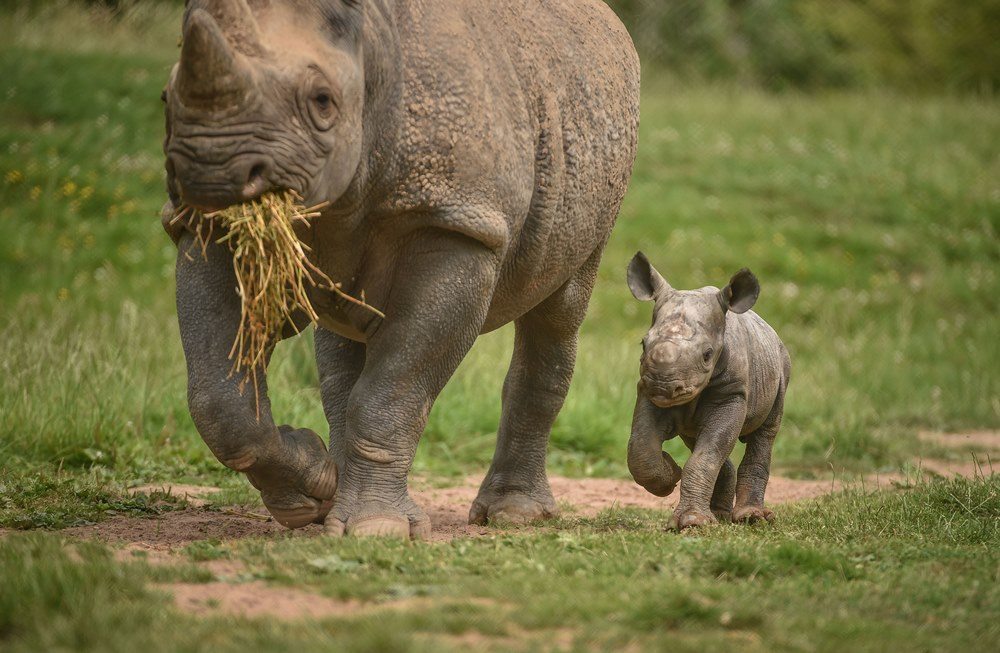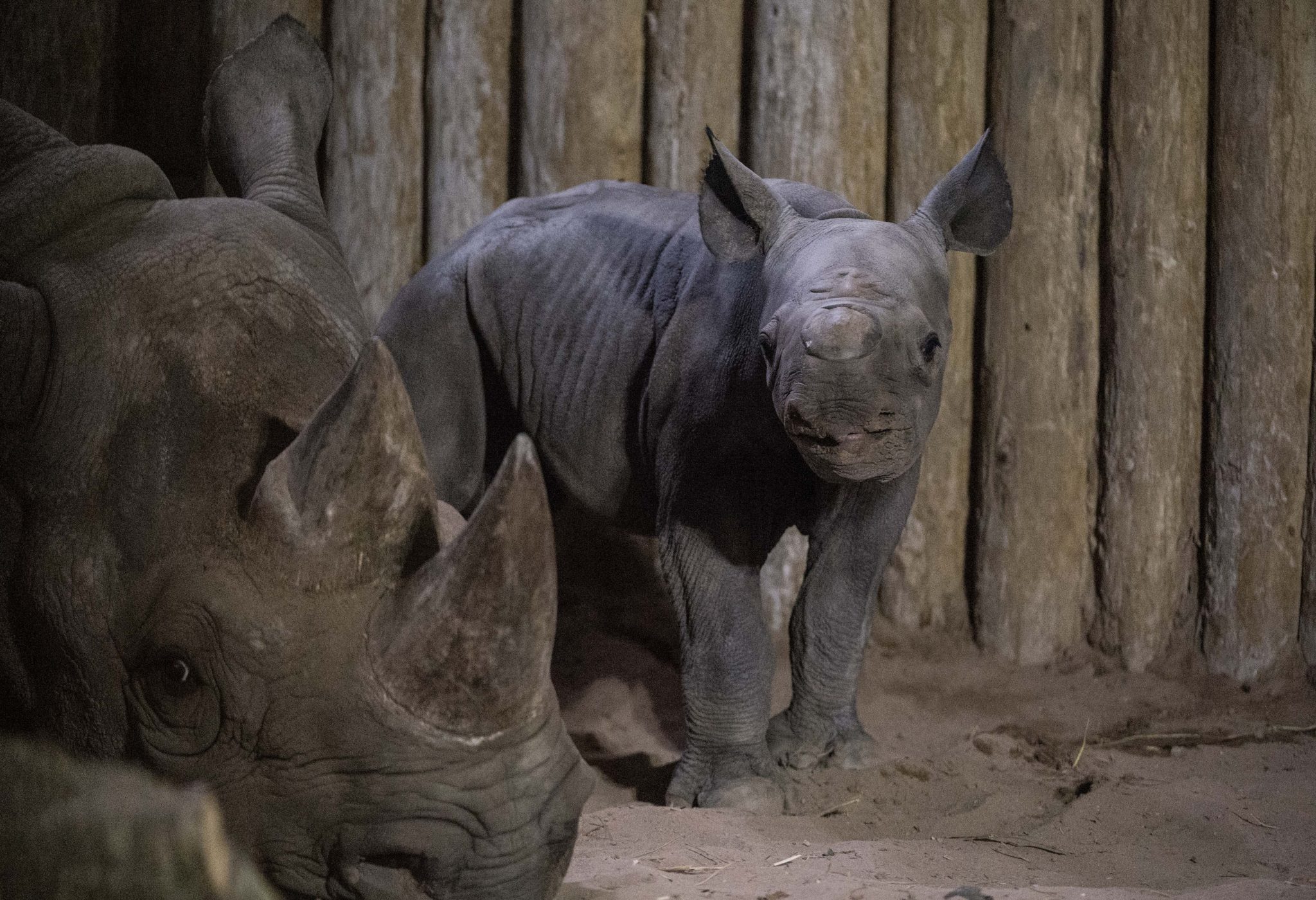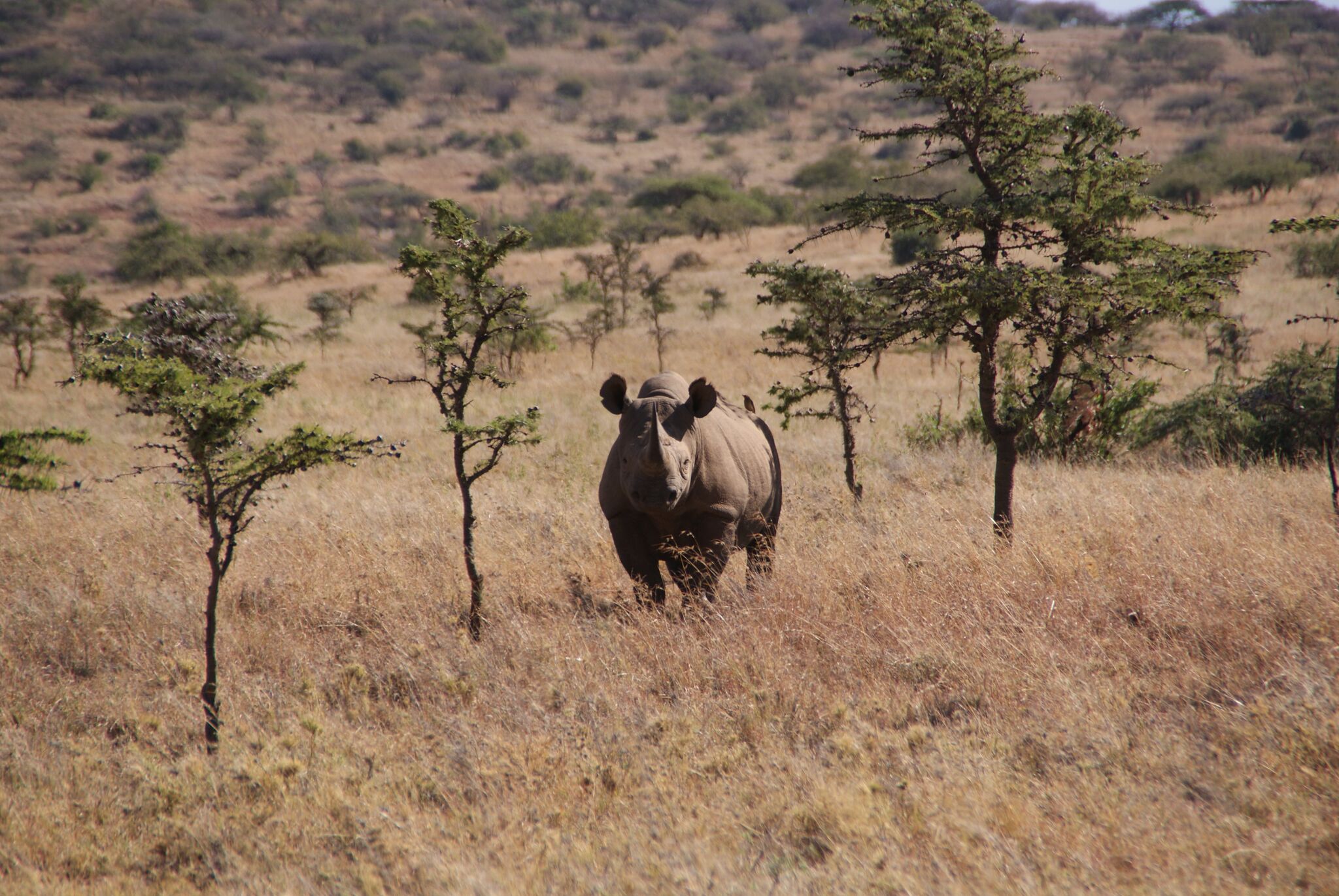With only around 650 individuals believed to remain across Africa, the two new arrivals at Chester Zoo are much welcomed additions; giving global population numbers a boost!

Chester Zoo’s Curator of Mammals, Tim Rowlands, said:
“These two births are a magnificent boost to the endangered species breeding programme and offer new hope for these wonderful animals. Eastern black rhinos are one of the world’s most high profile species, teetering on the brink of extinction in the wild; we cannot underestimate how important this is. The whole team is overjoyed and we now hope that these little ones help create more awareness of the plight of their cousins in the wild.”
The growing price of rhino horn has led to a huge decline in population numbers, which have decreased by up to 97% across Africa in the past 50 years!
The year 2014 was branded ‘the worst poaching year on record’ by leading conservationists after over 1,200 rhinos were hunted in South Africa alone – a 9,000% increase from 2007! The issue is being fuelled by the street value of rhino horn, which is currently changing hands for more per gram than both gold and cocaine, although modern science has already proven it to be completely useless for medicinal purposes as it’s made from the keratin – the same material as human hair and nails.

The in-depth specialist knowledge developed by our keeping and science teams that are running the rhino breeding programme, is being used right now in Africa to boost conservation efforts in the field.
Mike Jordan, Chester Zoo Collections Director, tells us:
“It’s superb to see the new calves taking their first steps; as we consider that each and every rhino calf is so important to the future of the species. We are one of a number of conservation organisations working in Africa – including Save the Rhino International and the International Rhino Foundation – to ensure the long-term survival of both black and white rhinoceros in the wild.
Alongside that, it’s vitally important to have a healthy breeding programme in zoos to maintain a genetically viable insurance population of the species and to develop the husbandry and scientific expertise that can be transferred to the wild. Conservation is critical, which is why these births are so vital.
We’re one of the main organisations fighting for the survival of eastern black rhino and have supported conservation efforts in the field to try and protect the species and we will continue to do all we can through funding and providing expertise, to numerous projects and sanctuaries in Africa.
The Chester Zoo Black Rhino Programme started in 1999, in partnership with Save the Rhino, providing substantial support to Kenya Wildlife Service to enable the translocation of 20 black rhinos to wildlife reserves in the Tsavo region of Kenya. The zoo has also provided support for rhinos in Chyulu Hills National Park and Laikipia District in Kenya and Mkomazi in Tanzania.
Our partners in Mkomazi have also been celebrating a new arrival after spotting a male calf within the reserve. The calf‘s mum, Daisy was also born in Mkomazi back in 2009 after a successful translocation, which means the new male calf is a second generation birth in the wild.
Two years ago the world’s leading experts on rhinos and rhino conservation came together in Europe for the first time when Chester Zoo hosted over 100 zookeepers, researchers, scientists and conservationists from the USA, Australia, Africa and Europe to debate issues surrounding the five species of rhino – black, greater one-horned, white, Sumatran and Javan rhino.
We won’t give up! We will continue to do all we can to stop the eastern black rhino from going extinct!
